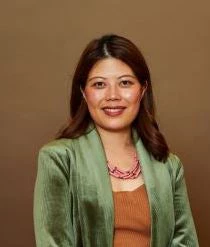
The beginning of the new year is a good time to look back at the most-read entries in our education blog in 2015. Provocative and informative, our bloggers write about some of the education sector’s most hotly debated issues today.
#8 MOOCs in China are growing
Between 2013 and 2014, the Chinese online education market increased by 700%. In contrast, the US market increased by only 9%. It’s not surprising then that the Chinese government expects massive open online courses (MOOCs) to bring “revolutionary” change to the education system. One of its goals is to train 13 million (!) K-12 teachers on education technology skills in the next five years through (MOOCs). Yidan Wang reflects on how MOOCs can really make learning for all a reality in China, given the country’s vast population and education issues.
#7 Raising learning and equity issues at the World Education Forum
At the landmark World Education Forum in May 2015, the global education community, including government ministers from more than 100 countries, non-governmental organizations and youth groups, adopted a transformative vision for education encouraging countries to provide inclusive, equitable, quality education and life-long learning opportunities for all by 2030 (see the Incheon Declaration here). In response to this demand, the World Bank announced that it will double results-based financing for education to $5 billion over the next five years. Claudia Costin (who heads the World Bank’s education team) blogs about the “bigger, bolder” agenda for the 250 million children who are in school but are not learning basic reading, math, and essential life skills.
#6 On school performance and funding higher education
Education expert Harry Patrinos says that typical student loans are unsustainable and penalize graduates too much. He makes the case for using a graduate’s future earnings to finance current education. Agree or disagree? Check out his blog here. Harry, together with Rafael de Hoyos and Vicente Garcia-Moreno, also says that providing information about school performance is essential but that the presentation of the data is what will make all the difference. Schools need information and they need to know how to use, how to compare themselves, and what the options are.
#5 Monitoring education in fragile states
In areas where schools, teachers, and students face direct attack, the physical monitoring of education programs isn’t only complex…it’s dangerous as well. Our bloggers write about how investing in Education Management Information Systems have helped in Afghanistan.
#4 Yunus to youth
Professor Mohammad Yunus, Nobel Peace Prize laureate and microcredit and microfinance pioneer, has some choice words for young people everywhere: “what are you waiting for?”. In Yunus’ future, young people will look back and ask: “why were youth unemployed?”. “Were they sick?” they will ask. Education specialist Robert Hawkins blogs about what the World Bank can do to support young entrepreneurs.
#3 Is the world obsessed with university rankings?
Short answer: YES. Tertiary education expert Francisco Marmolejo argues that the rankings obsession is a legitimate source of concern especially when it is used solely for promotional purposes or, even worse, when it becomes the main driver of policy decisions for governments and higher education institutions.
#2 The magic of education in Finland
Finland ranked fifth in science and sixth in reading on the 2012 PISA assessment, second on the 2012 PIAAC (the new OECD test of adult literacy), and it is routinely in the top five of practically every other international measure of education quality. Barbara Bruns says that there are three crucial elements that makes it possible for the magic of Finland’s education system to work. Find out what they are.
#1 The hypocrisy of developed-world educational technology proponents
Why do America’s wealthiest, best-educated, most tech-savvy parents work hard and pay good money to keep their children away from digital technology? Can students go through K-12 learning via video games? Guest blogger Kentaro Toyama, co-founder of Microsoft Research India, says that technology can enrich learning but that it can never replace a strong foundational education which, above all, requires good adult guidance.
What would you like to read about in 2016? Do share your suggestions in the comment section below.
Find out more about the World Bank Group’s work on education on Twitter and Flipboard.
Follow Anne Elicaño on Twitter.


Join the Conversation